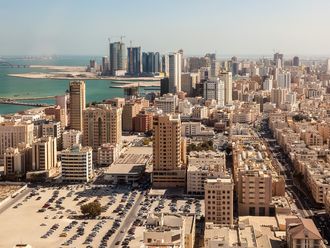United Nations: UN chief Ban Ki-moon on Wednesday sharply criticised tough jail terms imposed on 13 leading Bahraini opposition figures, calling on the country’s leaders to ensure the right to a fair trial.
“The secretary-general is concerned by the harsh sentences, including life imprisonment, upheld by a Bahrain appeals court,” Ban’s spokesman Martin Nesirky said in a statement.
The jail terms, which included seven life sentences, were imposed for charges of plotting to overthrow the government during last year’s Shiite-led protests.
Ban “urges the Bahraini authorities to allow all defendants to exercise their right to appeal and to ensure that due process is observed.”
And he “reiterates his appeal to the Bahraini authorities to ensure the application of international human rights norms, including the right to a fair trial, freedom of expression and peaceful assembly,” the statement added.
The UN chief also renewed his belief “that there needs to be an all-inclusive and meaningful national dialogue that addresses the legitimate aspirations of all Bahrainis.”
Meanwhile, human-rights groups and officials including Catherine Ashton, Europe’s foreign-policy chief, expressed disappointment at the sentences.
“I am disappointed and concerned” by the appeals court’s decision “to uphold the harsh sentences against Abdul Hadi Al Khawaja and 19 other individuals,” Ashton said in a statement. “I hope the appeal before the Cassation Court will be fair, transparent and conducted in the full respect of international obligations Bahrain has subscribed to.”
Amnesty International urged the authorities to overturn the court decision and demanded the immediate and unconditional release of the convicted men. British Foreign Secretary William Hague said he was “very disappointed” by the court ruling and urged Bahrain to respect human rights and freedoms.
Bahrain’s Foreign Ministry said that it’s proud of its “fair and independent judiciary.” The country “believes in and respects the principles related to the sovereignty of the law and the separation between authorities, in addition to non- intervention in the sentences passed down by the independent judiciary,” the ministry said in a statement.












